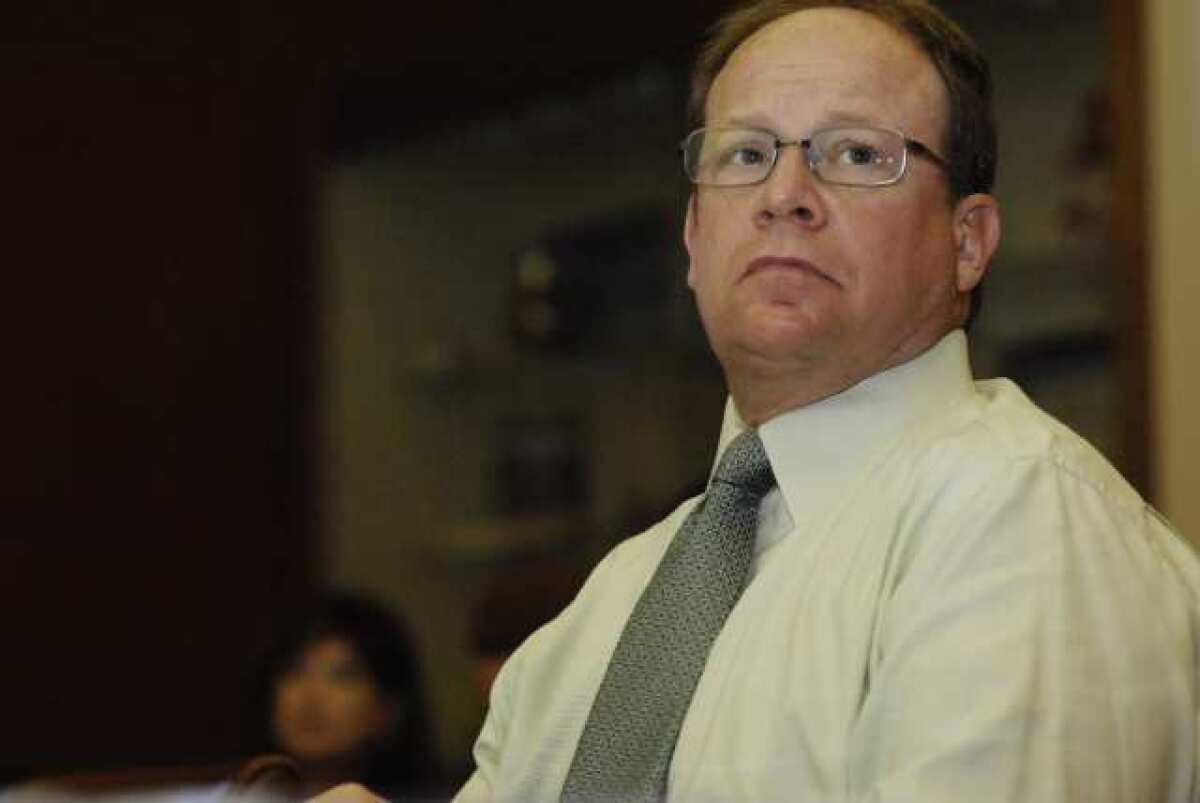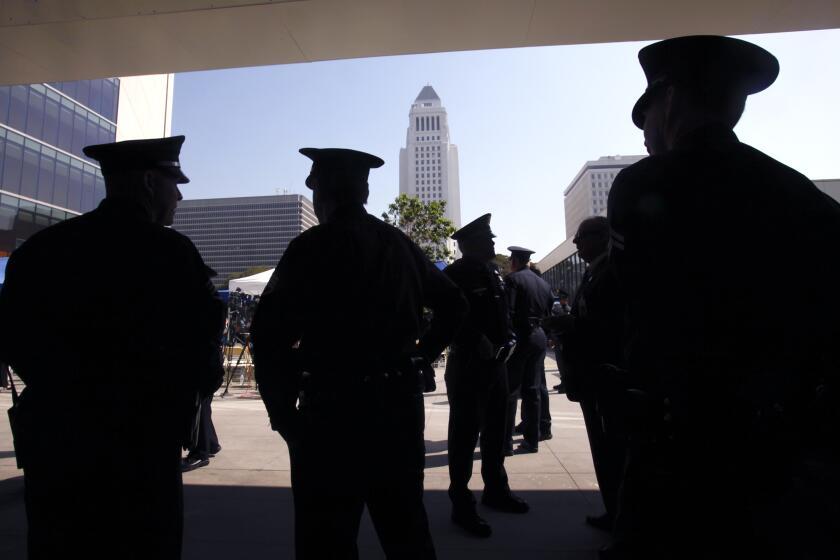Coliseum finance director earned Visa points on stadium upgrade

Last spring, the Los Angeles Memorial Coliseum set out to upgrade the sound system for its new video board. The equipment and shipping costs were steep -- about $270,000.
Finance Director Ronald Lederkramer could have bought the gear the way other government agencies do, by issuing a check from the taxpayer-owned stadium.
Instead, he put the package of high-powered loudspeakers on his personal Chase Visa card, charging it in installments and paying those off with government checks that he and a lower-ranking employee signed, according to records and interviews.
In the process, depending on which Visa he used, Lederkramer earned roughly enough redeemable reward points for a week at the downtown Ritz-Carlton, two Bulova watches or even a pair of first-class round-trip United Airlines tickets to London or Tokyo worth as much as $24,000, award schedules show.
What Lederkramer did with all those points is unclear. But experts say his actions were a breach of duty, raising questions of whether a conflict of interest -- his stake in the reward points -- influenced his decisions as an official responsible for safeguarding the public’s money.
“This is absurd and appears to violate every procurement policy the city of Los Angeles has in place to protect taxpayers,” City Controller Wendy Greuel told The Times in an email.
The Coliseum is jointly run by the city, county and state, and its governing commission operates under a management agreement that requires it to generally exercise its powers in “accordance with the mode, manner and procedures of the city.” The city’s purchasing protocols do not allow personal credit cards to be used for major acquisitions.
In a brief interview, Lederkramer defended his handling of the equipment buy, which occurred as the Coliseum was reeling from an ongoing scandal that has focused on conflicts of interest among top managers. He said the Coliseum benefited because his credit card granted an extra year’s warranty for products bought with it.
“How does the agency get hurt?” he said.
But Visa’s extended warranty is not valid for products purchased for professional or commercial use and in all cases has a lifetime maximum of $50,000 for the account, according to a Visa spokeswoman.
Lederkramer said he has used his points to travel to conferences on Coliseum business. Asked if he had documentation of those trips, he said no. “Why would I have kept that?” he asked.
He has billed the stadium for airfare and other costs to attend several conferences since 2009, according to Coliseum invoices obtained by The Times under the California Public Records Act.
For a consumer whose Chase Visa bill averages, say, $3,000 a month, it typically would take about 71/2 years to rack up the number of points that Lederkramer did in buying the sound equipment. That wasn’t the only sizable Coliseum expense he charged.
In less than three years, he has used personal credit cards for at least $114,000 in other purchases, including $21,000 for flooring and $14,000 for fencing material and related costs. He also bought televisions and kitchen shelves and rented two-way radios, expense reports show.
In addition to air travel, hotel stays and jewelry, points earned in a variety of Chase Visa programs can be used for Callaway golf clubs, Apple iPad 2s and expensive cameras, among other goods.
The Times first inquired in July about employees receiving credit card points for Coliseum purchases. The next month, the Coliseum Commission’s lawyer, Principal Deputy County Counsel Thomas Faughnan, wrote in response that employees used their personal cards under a system that Lederkramer instituted.
Lederkramer did so, Faughnan said, after the Coliseum stopped giving employees corporate credit cards because some staffers had improperly charged personal expenses on them.
Kirk O. Hanson, executive director of the Markkula Center for Applied Ethics at Santa Clara University, said using a personal credit card for large government procurements “screams major problems in the financial controls of the enterprise.”
He said that rather than get the best price, a purchaser could “end up buying the sound system from a particular supplier because it would permit the purchase on a credit card.” A seller might “charge more because of a credit card fee of 1[%] to 3%.”
Lederkramer bought the sound equipment more than two months after the financial scandal erupted at the Coliseum and led to the resignation of his longtime boss, former General Manager Patrick Lynch.
Lynch’s successor, interim General Manager John Sandbrook, did not respond to questions about why he allowed Lederkramer to use his personal credit card for the purchase and to issue checks directly to Chase Visa. Lederkramer did not file expense reports for the purchase. The checks were countersigned by the Coliseum ticketing director.
Coliseum Commission President David Israel said Sandbrook eventually prohibited employees from making major purchases on personal credit cards.
Lederkramer paid for the sound equipment in five $45,000 installments and a final one of $47,534.78, from April 29 to May 27, purchasing records show. Those checks totaled $272,534.78. Lederkramer later refunded the commission more than $4,600, according to the records. The overpayments were not explained.
Lederkramer, whose 2010 compensation was more than $190,000, has been on paid medical leave since September. He began the leave shortly after City Councilman Bernard C. Parks called for his ouster, on grounds that he failed to stop spending abuses and billed the stadium for his own luxury car expenses, personal auto insurance and other perks.
But Sandbrook, who was recruited for the Coliseum post by County Supervisor Zev Yaroslavsky, a member of the commission, has staunchly defended Lederkramer’s performance. Last summer, Sandbrook granted him a 17% raise, an increase that Israel rescinded.
Sandbrook later said he should have waited to give Lederkramer and other employees a raise until after the completion of a salary study. In August, Lederkramer was reimbursed for putting about $1,300 in study-related costs on his personal credit card.
More to Read
Sign up for Essential California
The most important California stories and recommendations in your inbox every morning.
You may occasionally receive promotional content from the Los Angeles Times.












